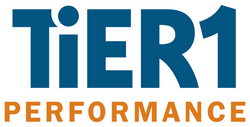Search results for 'Kerri Chik'
Displaying
6 Items
Categories
Article
2
Blog
2
People
2
Refine By
Displaying
6 Items
Kerri Chik
Kerri Chik is an industrial organizational scientist and principal consultant, driven by a passion for finding innovative solutions to a diverse range of intriguing problems and research questions. Her approach emphasizes both scientific rigor and technical excellence. With a professional background focused on leadership and team development, performance measurement, data analysis, and instructional design, Kerri has been instrumental in optimizing training programs and evaluating human performance across various sectors. She has a track record of developing performance measures, conducting comprehensive training content analyses, identifying training gaps, and assessing the effectiveness of training initiatives for both military and commercial organizations. Kerri's satisfaction comes from sharing her knowledge and inspiring others. Whether she's working with clients or teaching classes, she takes pride in knowing that her work has a positive impact on people's lives. Her favorite things include witnessing the beauty of sunsets and sunrises, practicing yoga, delving into behavioral statistics, and making memories with her family.

3 Timeless Tenets for Leadership Development
Embracing development, creating meaning, and reframing obstacles will help you and those you lead thrive amid ongoing change. Let’s dig into these three tenets.
By Jeremy Goebel, Kerri Chik on 21 Oct, 2023
Kerri Crowley
Principal Instructional Designer | Children's Hospital of Philadelphia
Kerri Crowley is a principal instructional designer at Children's Hospital of Philadelphia. She creates learning experiences for CHOP staff in multiple modalities. Kerri recently completed a Master's Degree in Digital Media Design at Harvard University, where she intensively studied accessibility requirements and best practices. Her perspective on learning is deeply influenced by her 11 years as a high school educator. For fun, she enjoys making music, exercising, and spending time with loved ones.

Four Change Management Tips Every Leader Can Use
To some degree, we all spend time trying to influence others to think and act differently than they do—coworkers, family members, children, neighbors, friends, and so on.
By Justin Hale on 17 Jun, 2022

What Succession Plan?
Building a strong bench for the future proved challenging because leaders didn’t believe in the process.
By Terri Pearce on 15 Sep, 2017
Establishing a Common Vision Among Healthcare Providers
By Eli Becker, Terri Welch on 8 Sep, 2015


